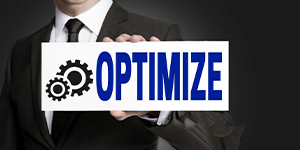Confirmation Bias: How It Shapes Thinking and How to Guard Against It
A psychological phenomenon influencing our view and interpretation of data is confirmation bias. This cognitive bias causes people to ignore or undervalue data that runs counter to their preconceptions or ideas favoring instead information that supports them.
Confirmation bias affects relationships, decision-making, even society dynamics, thus understanding it is absolutely vital. Particularly for marketers, this article will look at the confirmation bias definition offer confirmation bias examples in real life, address how to avoid confirmation bias, and weigh its benefits and drawbacks.
We will also go over questions including, "Which of the following is an example of confirmation bias?" and "What effect do motivated reasoning and confirmation bias have on politics?"
 |
What is the Confirmation Bias?Confirmation bias is a fundamentally ingrained cognitive bias in which individuals tend to seek out, interpret, and recall information in a manner that aligns with their preexisting beliefs or hypotheses. |
Instead of being entirely objective, our minds process new information through a perspective molded by previous assumptions.
This bias fulfills a psychological function: it assists in conserving mental resources and preserving self-esteem. When we hold an emotional attachment to a belief, it is psychologically simpler (and frequently more reassuring) to reaffirm it rather than to examine it critically.
We thus often unintentionally filter out material that questions our perspective, so supporting our preconceptions.If someone thinks, for instance, that a particular diet is the healthiest, they are more inclined to pay attention to papers, research, or quotes bolstering this view while neglecting data pointing otherwise.
Confirmation bias is fundamentally the selective processing of information.
Confirmation Bias Examples in Real Life
One can find confirmation bias all around in many spheres of life. These are some confirmation bias examples in real life:
- Media and Politics: In the era of social media confirmation bias is prominently reinforced through, echo chambers. Individuals frequently prefer news sources, and online communities that reaffirm their preexisting perspectives thereby reinforcing their beliefs rather than encouraging critical examination.
- Research & Science: Confirmation bias extends beyond daily reasoning—it also jeopardizes the integrity of scientific research. Researchers may inadvertently prioritize data that corroborates their hypotheses while neglecting evidence that contradicts them.
- AI and Human-AI Collaboration: Recent research indicates that confirmation bias influences not only humans but also generative AI systems. For instance, large language models have the capacity to reinforce user beliefs by generating responses that correspond with their preexisting perspectives, thereby creating feedback cycles.
- Healthcare Decision-Making: In clinical environments, confirmation bias may distort diagnostic processes — physicians under time constraints might be more inclined to accept AI suggestions that reinforce their initial assessments, rather than exploring alternative options.
How to Avoid Confirmation Bias
Making wise decisions depends on an awareness of and reduction of confirmation bias. These are some techniques meant to help one how to avoid confirmation bias:
- Do not merely passively absorb content that is in agreement with your paradigm; rather, actively seek out information that contradicts your worldview. The practice of reading or listening to opposing ideas should become a habit.
- Ask yourself, "Why do I believe this?" as part of your structured reflection practices. If I'm mistaken, what then? What kind of evidence would convince me otherwise?
- Encourage Critical Thinking in Groups: In the context of a team or an organization, it is important to foster debate, dissent, and devil's advocacy. Additionally, it is important to establish procedures that test preconceptions.
- In situations when it is feasible to do so, it is advisable to base decisions on objective measurements, empirical studies, and reproducible outcomes rather than relying solely on personal experiences or first impressions.
- Leverage Design (for Digital): When utilizing search engines or platforms, select tools or browser extensions that bring to light a variety of perspectives. Alternatively, use platforms that designate the stance of articles to assist you in breaking out of echo chambers.
- Be cautious of how you word your prompts while communicating with artificial intelligence (for example, chatbots), as this is an important aspect of the interaction. If you want to force the model to generate a wider variety of information, you should try rephrasing the questions from other perspectives. It is also important to exercise caution while using chain-of-thought reasoning because LLMs have the potential to both reflect and magnify confirmation bias.
These techniques help people and companies make more objective decisions and lessen the effect of confirmation bias.
The Pros & Cons of Confirmation Bias for Marketers
Particularly in the discipline of marketing confirmation bias provides benefits as well as drawbacks. Knowing the pros & cons of confirmation bias can enable companies to maximize its advantages while minimizing its negative effects.
Pros:
- Targeted Messaging: Marketers can use those points of view by creating messages that fit people's present attitudes. This facilitates your engagement of people and building of rapport with them.
- Brand Loyalty: Consumers who already enjoy a brand are more likely to understand marketing messages favorably therefore supporting their loyalty, and motivating repeat business.
- Simplified Decision-Making: Confirmation bias can help consumers pick goods or services that fit their tastes therefore lowering their decision-fatigue.
Cons:
- Resistance to Change: Consumers may object to new ideas or products that contradict their current views; hence marketers find it challenging to bring about transformation.
- Echo Chambers: Relying too much on confirmation bias can limit marketing strategies to a small group, which reduces opportunities for growth..
- Ethical Concerns: Should it be discovered, utilizing confirmation bias to direct consumer purchase is unethical and could harm a company's reputation.
Through thorough evaluation of the pros & cons of confirmation bias for marketers companies can create plans that successfully involve their target market while preserving ethical standards.
Which of the Following is an Example of Confirmation Bias?
To help you understand confirmation bias, think of a multiple-choice test: Of the following, Which of the following is an example of confirmation bias?
- A scientist conducting an experiment and depending just on facts to validate their hypothesis.
- A student gathering several materials to create a well-balanced essay.
- A writer covering a neutrally occurring event.
- A physician weighing every available diagnosis before deciding on anything.
The right reply is A. Confirmation bias is best shown in this situation when the scientist is rejecting contradicting data in favor of data supporting their theory. By seeking different points of view and weighing all the facts, the other choices show actions that deliberately prevent confirmation bias.
What Effect Do Motivated Reasoning and Confirmation Bias Have on Politics?
Political attitudes and actions are greatly shaped by confirmation bias and also motivated thinking. Often supporting confirmation bias, motivated reasoning is the process of reading material in a way that fits one's goals, interests.
In politics, these cognitive distortions might cause:
- Polarization: People grow more firmly rooted in their political views, which fuels more division and antagonism among different groups.
- Misinformation: People are more prone to believe and also distribute knowledge that backs up their political opinions even if it is misleading, or untrue.
- Opposition to Compromise: Should bipartisan solutions contradict their ideological values, politicians and also voters can reject them, therefore impeding advancement.
- Election Outcomes: Confirmation bias can affect voting behavior since people could only consider data supporting their chosen candidate or party.
Motivated reasoning and also confirmation bias, taken together on politics produce a more fragmented and less informed electorate that makes it difficult to handle difficult social problems.
Conclusion
One strong cognitive bias influencing our knowledge interpretation and decision-making is confirmation bias. We can help to lessen the effect of confirmation bias by knowing its confirmation bias definition and confirmation bias examples in real life. Developing critical thinking and making wise decisions depend on an awareness of how to avoid confirmation bias.
The pros & cons of confirmation bias draw attention to for marketers the need of striking a balance between ethical issues and targeted message. Furthermore, knowing questions like "Which of the following is an examples of confirmation bias?" and "What effect do motivated reasoning and confirmation bias have on politics?" would help one to have insightful analysis of how this prejudice shapes both personal and group behavior.
The first step toward overcoming confirmation bias's influence is ultimately knowledge of it. Seeking several points of view and challenging our presumptions can help us to make more objective decisions and support a society informed and inclusive.
Read More: What is the Importance of Communication Skill at Workplace





